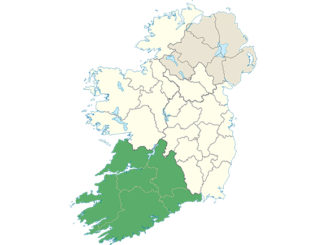
In what has been one of the most shocking and disruptive recent geopolitical events, The Russian Federation’s invasion of Ukraine has dominated headlines and timelines for the past week.
As news outlets maintain consistent coverage of the attacks, the public’s pressing exposure to the death and destruction that war brings is ongoing, increasing fear as tensions have risen to unprecedented levels.
It is very easy to spiral into a news-binging frenzy as anxiety coerces you to find some affirmation that things have not gotten worse.
‘Doomscrolling’ is a term used to describe the act of consuming negative news and related content for prolonged periods of time, theorised to derive from our urge to seek and remain aware of possible dangers during primitive times.
It often leaves the scroller more distressed than less, as all it merely does is amplify their exposure to negative news. It is a particularly worrying compulsion now with social media, as distressing articles can appear on a user’s timeline, even when the user does not seek them.
To combat this, it is important to recognise and maintain a healthy level of engagement with the news as the war in Ukraine continues. Coverage will evolve as its novelty wanes and follow up stories will dominate the headlines and generate their own separate developments.
To start, be aware of alarming phrases such as “the largest conflict in Europe since WWII” in reports covering the attacks, and more recently “the largest nuclear plant in Europe” in coverage of the attack at the Zaporizhzhia nuclear power station.
While these phrases are true, their repetition is distressing to the public and unnecessary in the continued reporting of this war. The ongoing developments and fallout from this conflict can be adequately reported without repeating pieces of trivia relating to it.
If you have an interest in specific fields which may be impacted as a consequence of this war, then maintaining your engagement with the news may require a more active level of control than just allocating a certain time each day to check for updates.
For example, if your interest is in the energy sector, the sanctions against Russia’s petroleum industry as a result of the war would have you more engaged with the news than someone who may just seek the latest updates of the attack.
It may be best to pursue updates on your specialised interests through publications which are reputable for covering those specific fields in an informative and thorough manner.
You are more likely to find features, interviews and updates there which more appropriately isolate these developments from the broader global stage than from a news network which aims to cover multiple developments and interests, and combine them with coverage of the broader developments.
As abstaining and unnatural as it may feel in this media-centric environment, scheduling the times which you pick up your remote or phone to actively seek updates on the conflict will help you navigate through the regular life you need to lead.
This is not to undermine the role of the news. To dismiss media outlets as alarmist sensationalists that profit from your fear is extremely inaccurate. The saddening of
Not long ago, the warzones depicted on the news once facilitated the leisure of a peaceful population. They saw businesses trade with each other; cooperate and grow. They were once a canvas for art and an outlet for expression. They housed families whose worries’ severity were once limited.
These warzones’ residents did not fear displacement, destruction or mortality.
This is why coverage of the destruction is vital. Medias play a huge role in assisting the dissemination of information- one of the most powerful diplomatic tools we have at our disposal.
Now more than ever, a war like this will have one of the most detailed archives imaginable, as the power to push coverage is at the hands of everyone from the top of command right down to the front lines.
More atrocities than ever will come to light; More lies than ever will be challenged, and more citizens than ever will be informed. When practiced idealistically, this aspect of the media can apply a monumental drive to the public and their governments to act in service of maintaining safety and combating injustice.
In a sense, the news serves to inform us of the extraordinary- changes to the operations of what its consumers perceive as a normal life; and in doing so, it spotlights the abnormal.
When contained, this exposure to abnormality can benefit a society, as members of the public can be informed of the faults of a system and work to improve them, but when this exposure is open ended and ongoing, a dire view of the world can form as the lack of relative normalcy surrounding the consumer is disproportionate to the turmoil they’re witnessing.
Keep engaged with the news. Use information to challenge narratives and identify agendas. Benefit from educating yourself, but be able to recognise when that engagement starts hurting you more than it helps.



